
The Cocker Spaniel, along with other members of the spaniel family, may have originated in Spain. In the fourteenth century, Gaston Phoebus, Count de Foix, wrote a thesis on hunting.
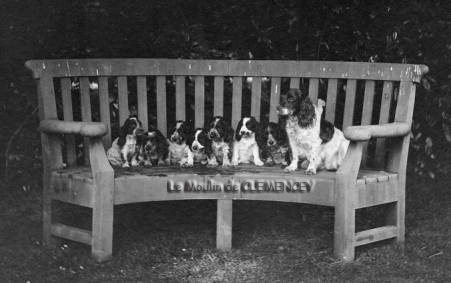
The chapter devoted to chiens d'oysel (bird dogs) referred to Espainholz, a likely Spanish ancestor of the Cocker. Another hint at Spanish origins occurs in the writings of Dr. John Caius, who, in 1576, said : "The common sort of people call them by one general word, namely spaniels (sic) as though these dogs came originally from Spain". The word "Spaniel", probably derived from the Old French word "espaignol", simply meant "Spanish dog".
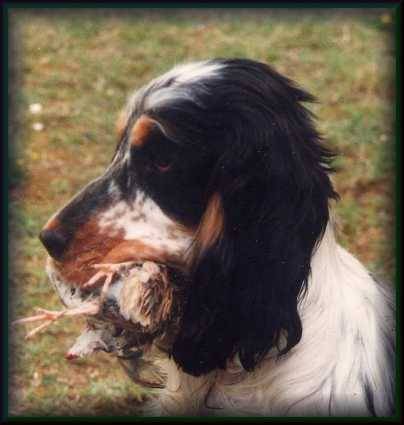
By the seventeenth century, there were all kinds of spaniels, big and small, long and short, fast and slow. Some were used in France and Britain for hunting with nets. Eighteenth century, England had two distinct varieties of spaniel : the larger Springer, highly valued in hunting waterfowl and the Cocker, used for hunting woodcock. The Cocker, therefore, may have been named for its ability to "cock" or flush game. The dukes of Marlborough bred Cockers and, by adding strains of the King Charles spaniel changed the line completely. The breed was definitely established late in the last century.
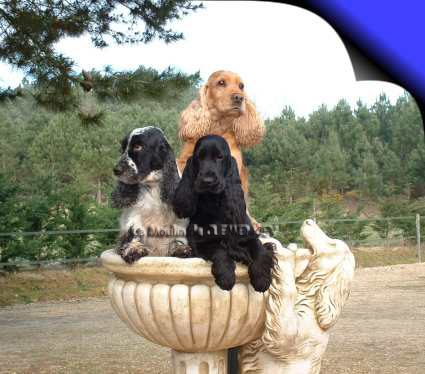
The English cocker spaniel is a
tireless, enthusiastic
hunter. Its small size allows it easy access everywhere so it can methodically
explore terrain and discover game where other dogs cannot. Unmatched in hunting
woodcock or pheasant, the Cocker can also flush out partridge and will wade
fearlessly into a marsh to pick up a duck or goose. It is an excellent and
willing retriever.
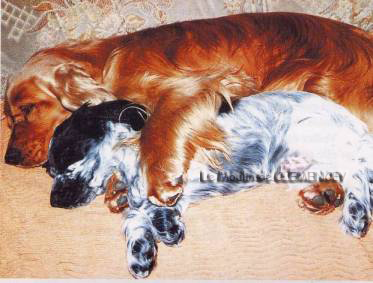
The Cocker has also become a popular companion dog, admired for
its size, elegance, soft coat and beautiful head framed by long,
dangling ears. It is gentle, playful, even impish at times.
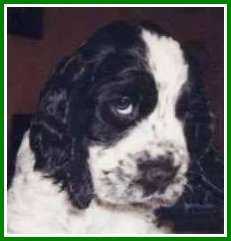
Curious about the world around it,
submissive but not slavish, this dog takes an active interest in its owner's
life and is a devoted pet. Rudyard Kipling once called his English Cocker his
greatest fan, pleased and amused that it loved him without ever having read a
word he had written.
Back to top
![]()
![]()
|
|
Copyright © Jean-Claude Danjean - All rights reserved |